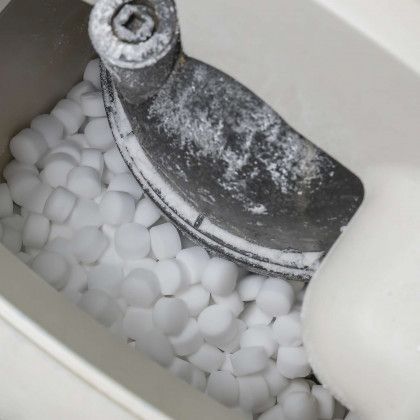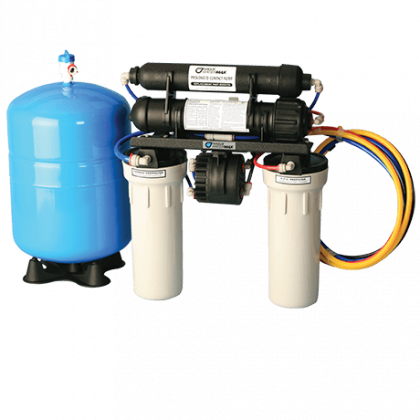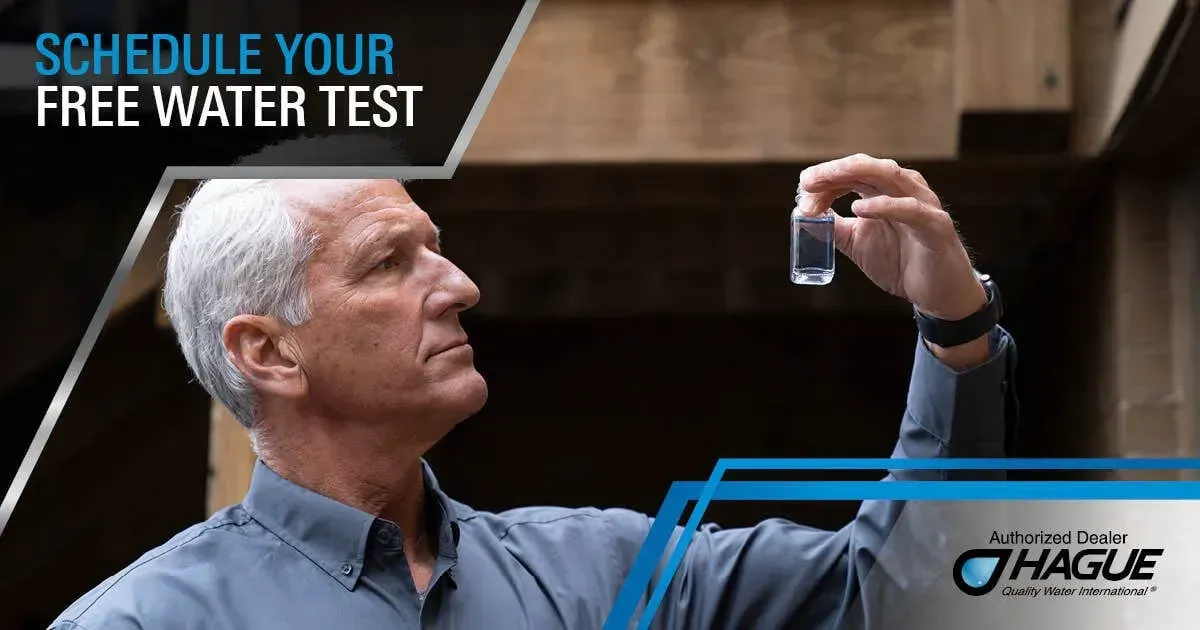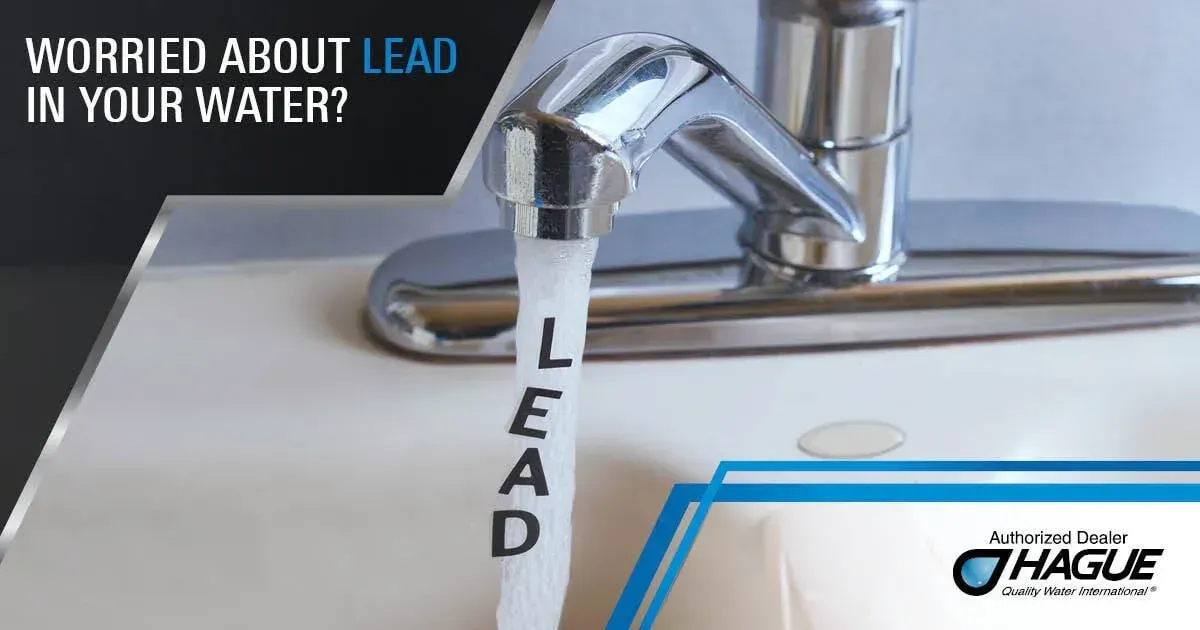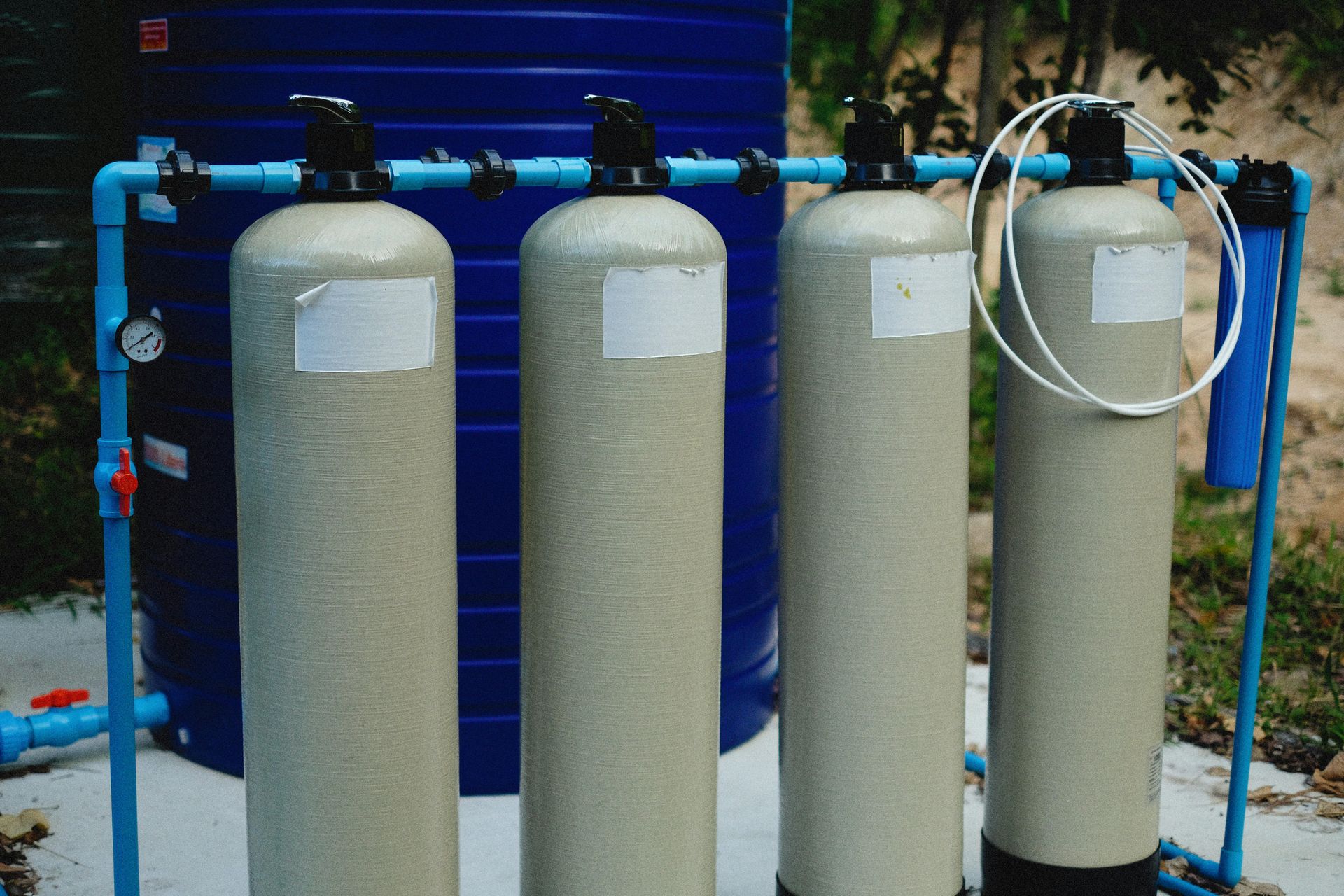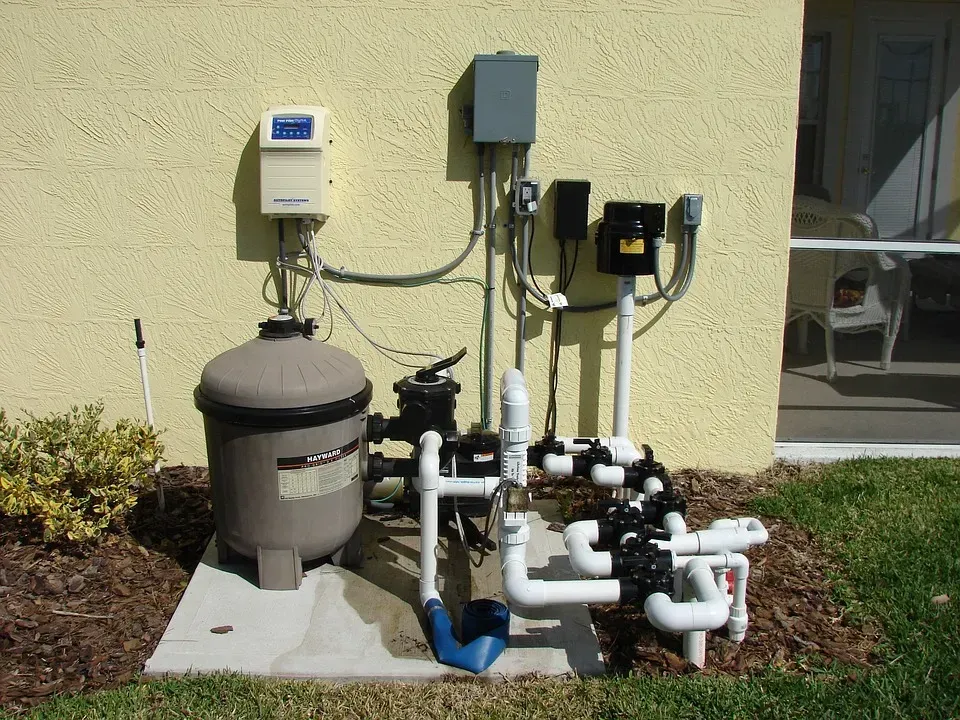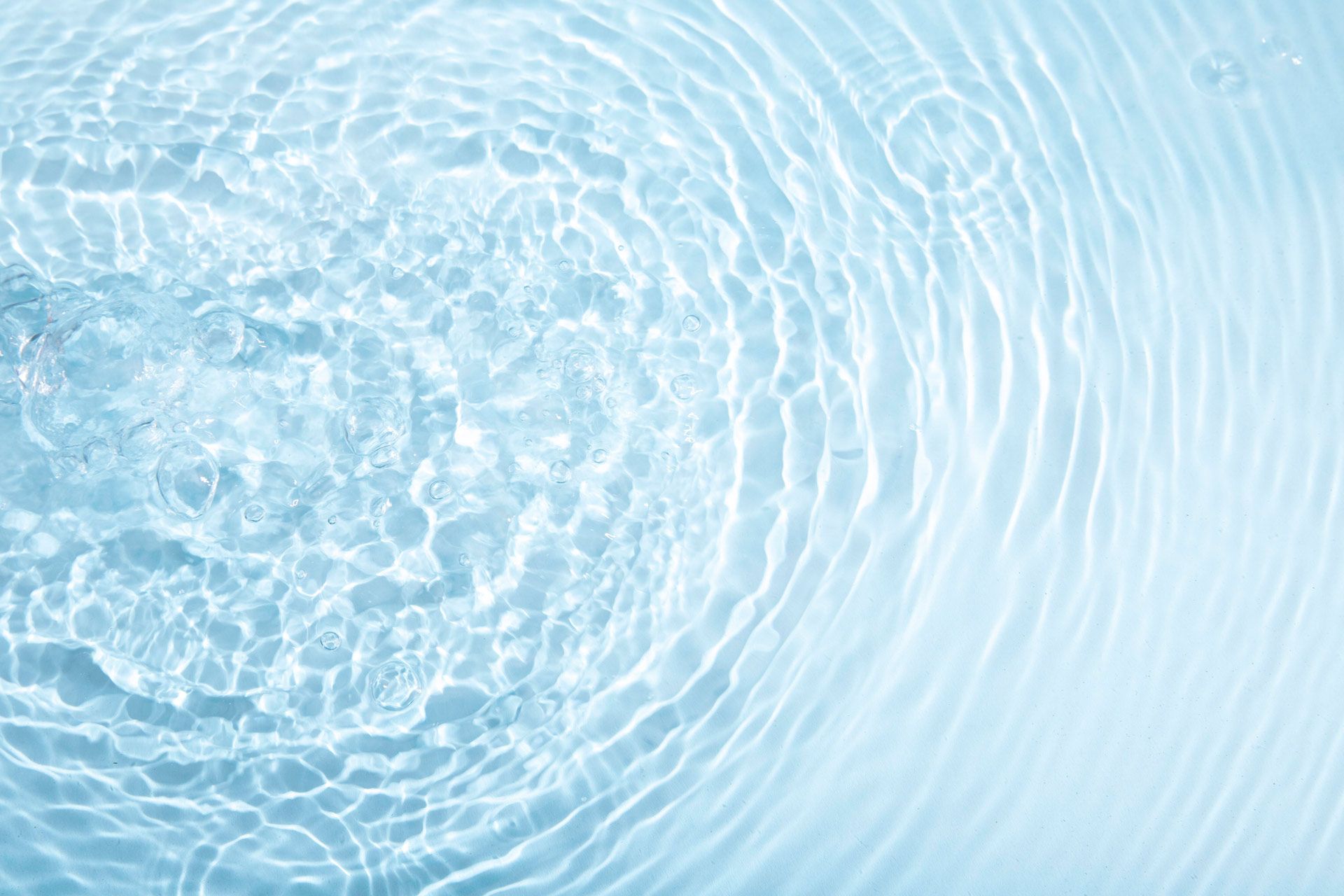How Do I Know If I Have Hard Water in Indiana and What Can I Do About It?
August 31, 2023
Have you noticed a white, chalky film on your faucets, cloudy spots on glasses, or stiff laundry after washing? If so, you may have hard water—a common issue for many Indiana households, from Avon and Carmel to Franklin and Shelbyville.
Hard water minerals aren’t dangerous, but they can be costly and frustrating. They reduce appliance efficiency, leave residue on fixtures, and make skin and hair feel dry. This guide explains what hard water is, how to test for it, and the most effective way to fix it in your Indiana home.
What is Hard Water?
Hard water is water with elevated levels of calcium and magnesium picked up as groundwater moves through mineral-rich rock. While safe to drink, these minerals create limescale deposits and make soaps and detergents less effective.
Common Signs of Hard Water
Before you test, it helps to spot everyday clues. Look for these typical indicators around the house.
- White, chalky buildup on taps, showerheads, and kettles
- Cloudy or spotted dishes and glassware after washing
- Soap that doesn’t lather easily and leaves a film
- Stiff, dull clothing out of the washer
- Dry, itchy skin and flat, dull hair after showering
- If several of these ring true, your home likely has hard water.
How Hard Water Affects Your Home
Hard water isn’t just a nuisance. Over time, it can shorten the life of plumbing and appliances and raise your energy costs.
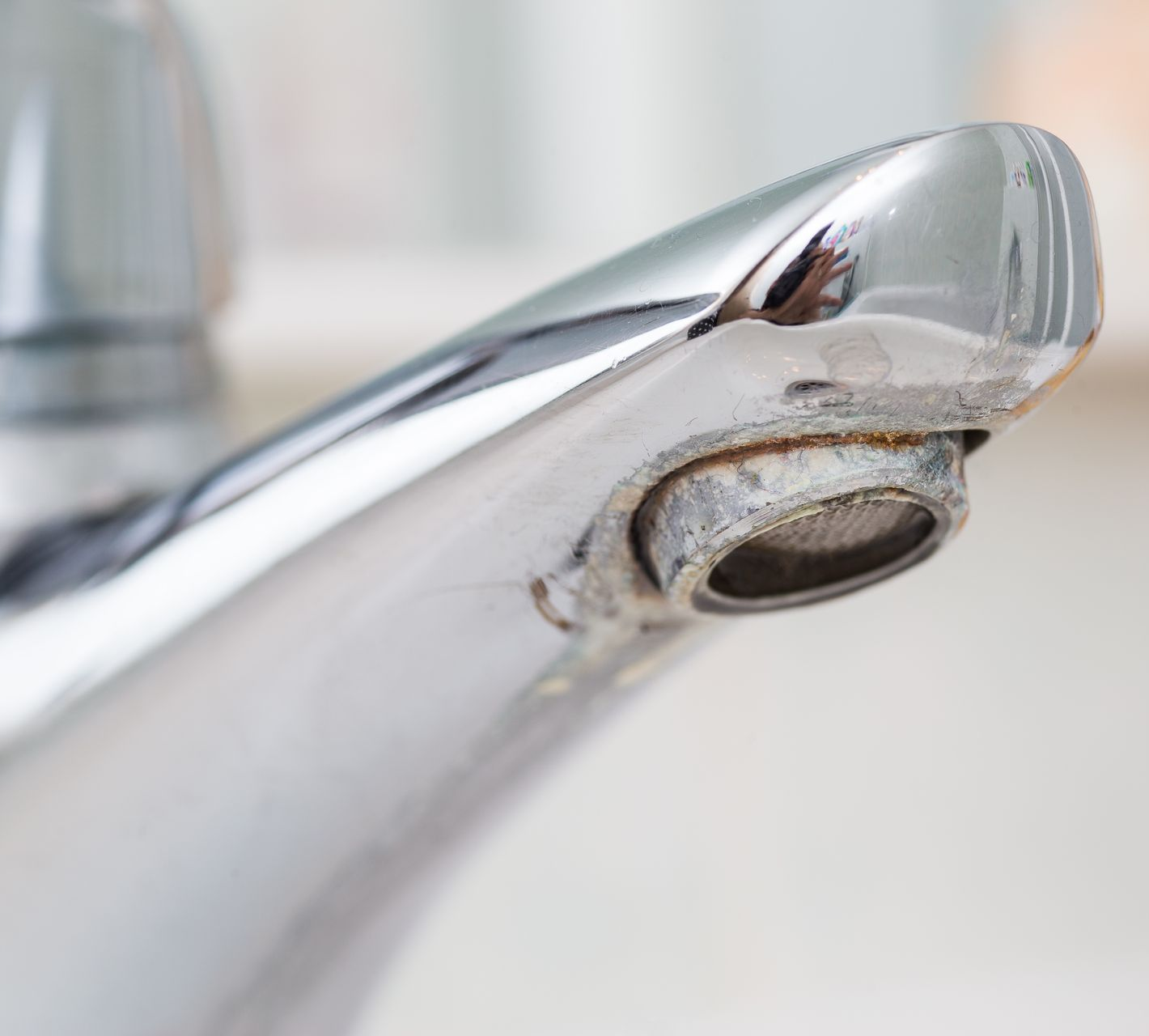
Plumbing and Pipes
Mineral deposits slowly narrow pipes and fixtures. This restricts water flow, increases pressure, and can lead to leaks or corrosion if left untreated.
Appliances
Water heaters, dishwashers, and washing machines accumulate limescale on heating elements. That buildup forces appliances to work harder, wasting energy and wearing them out sooner.
Skin and Hair
Mineral residue can keep soaps and shampoos from rinsing clean. This often leads to dryness, irritation, and dull-looking hair.
Cleaning and Laundry
Minerals react with detergents, reducing their cleaning power. Clothes may look dingy, surfaces can feel filmy, and glassware often stays streaked.
How to Test for Hard Water
If you suspect hard water, there are quick ways to confirm it. Start simple, then move to professional testing for accuracy.
- Soap Test
Fill a clear bottle with tap water, add a few drops of liquid soap, and shake. If little foam forms and the water stays cloudy, hardness is likely. - Hardness Test Kit
Affordable kits measure hardness in parts per million (ppm) or grains per gallon (gpg). Readings above roughly 120 ppm (about 7 gpg) indicate moderately hard water. - Professional Water Analysis
A professional test provides exact hardness levels and recommendations tailored to your home’s usage and plumbing.
How to Fix Hard Water Problems
If your water is hard, there’s a proven solution. The most effective, whole-home approach is a water softener that removes calcium and magnesium using ion exchange. Correct sizing and setup are important to match your family’s water use and your hardness level.
Benefits of Installing a Water Softener
Before choosing a system, it helps to understand the payoff. Homeowners typically see multiple improvements right away.
Smoother skin and softer, more manageable hair
- Cleaner, brighter laundry and spot-free dishes
- Longer-lasting plumbing and water-using appliances
- Lower energy use from more efficient heating
- Less time spent scrubbing limescale and soap scum
With a properly maintained softener, your water will feel better, your cleaning will be easier, and your home’s systems will run more efficiently.
Frequently Asked Questions
- What causes hard water in Indiana?
Indiana groundwater naturally passes through mineral-rich rock. As it does, it absorbs calcium and magnesium, which increase hardness levels in many local water supplies. - Is hard water safe to drink?
Yes. Hard water is generally safe, but it can affect taste and leave scale in kettles and on fixtures. Most concerns are about comfort, cleaning, and appliance wear—not drinking safety. - How can I tell for sure if my water is hard?
Use an at-home hardness test kit for a quick reading, or schedule a professional test for precise results and system recommendations. - Will a water softener remove existing limescale?
Over time, soft water can help dissolve old deposits in pipes and on heating elements, while preventing new scale from forming. - Do water softeners need a lot of maintenance?
Maintenance is simple. Most systems need periodic salt refills and occasional service checks to keep performance and efficiency high. - Will soft water feel or taste different?
Soft water often feels silkier on skin and hair and can taste slightly different, mainly because soaps rinse cleaner and mineral content is reduced.
Conclusion
Hard water is common across Indiana and can quietly drive up energy costs, wear out appliances, and make daily tasks tougher. The good news: it’s easy to identify and straightforward to fix. With the right water softener,
you’ll protect your plumbing, improve comfort, and simplify cleaning throughout your home.
